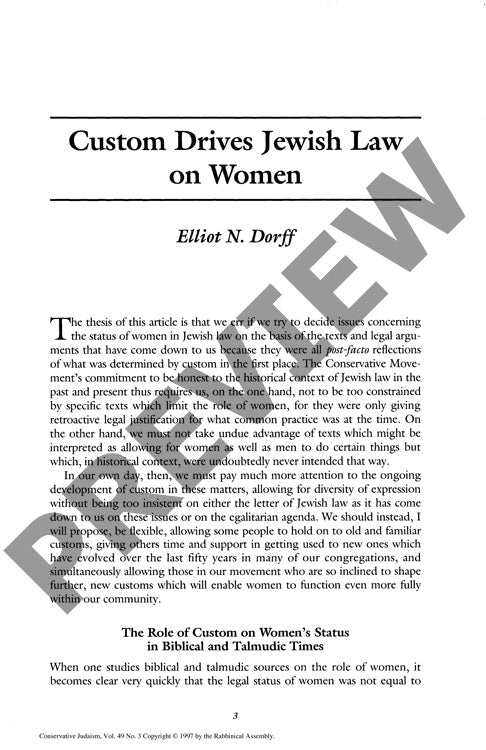Custom Drives Jewish Law on Women
Couldn't load pickup availability
Centuries of Jewish legal discourse on women's roles have obscured a surprising truth: communal customs, not formal legal reasoning, historically drove changes in women's status within Judaism. While rabbis crafted sophisticated textual arguments about women's participation in synagogue life, witnessing, marriage, and divorce, these often served to justify existing practices rather than shape them. Analysis of biblical, talmudic, and medieval sources reveals persistent gaps between official legal positions and documented communal behaviors, suggesting custom's primacy in legal development—a pattern mirrored in secular systems like American law. The Conservative Movement's evolution on issues like mixed seating, bat mitzvah ceremonies, Torah honors, and women's ordination particularly demonstrates how grassroots practices typically preceded formal halakhic approval. Drawing on comparative examination of legal texts and historical records, this research reveals how authentic Jewish legal development emerges from the complex interplay between custom and law. These findings suggest that contemporary Jewish communities should embrace measured flexibility, allowing diverse customs to develop organically rather than imposing uniform egalitarian standards through legislative decree (takkanah). Such an approach honors both gender equality and distinctiveness while respecting varying communal comfort levels with ritual innovation.

More Information
-
Physical Description
-
Publication Information
Published 1997
ISBN
-
Publication Credits
Elliot Dorff

